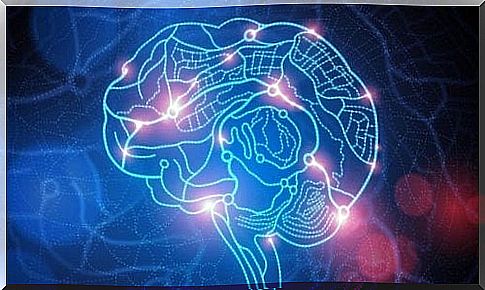Humiliation Is An Attack On Our Identity

We feel some emotions very strong. Such feelings include guilt, anger, grief, and rage. However, there is one that we have not yet mentioned and that is so strong that it can really tear us to pieces: humiliation. This is because humiliation is an attack on our identity.
Humiliation is a negative feeling that leaves a deep impression on us. It feels like we are worthless, just mediocre, that whatever we do to us is laughed at…. sometimes it is a burden we carry for a long time.
Humiliation activates pain-related areas of the brain
Researchers at the University of Amsterdam conducted a study comparing the emotional reactions of 46 volunteers. The researchers analyzed the brain waves of the participants when they saw the violations and flattery on the screen.
Participants were also told stories in which they had to place themselves in the position of the protagonist. It encouraged them to combine their feelings through empathy. For example, one situation was meeting a friend. When the person they were supposed to meet saw them, that person turned around and left.
The researchers found that the feeling of humiliation caused much faster and more intense brain activity than pleasure. It was more negative than anger, and in addition, the areas associated with pain became activated.

While the compliments evoked joy, the humiliation felt much more intense than the pleasant feeling caused by joy. But the most amazing thing is that even anger was not as intense as humiliation. The insults made many participants shocked or angry, but the reaction caused by the humiliation was even more negative.
Humiliation is a part of everyday life
Humiliation is a feeling that is not uncommon in our daily lives. In fact, many people are only able to communicate by humiliating others, and yet somehow believing that they are really doing good. However, they lack the empathy they would need to be able to say things in a more pleasant and subtle way.
It is said, for example, that a mother praises her son’s friend. He compares his son to a friend. Unknowingly, he has forgotten the achievements of his own son. And if she makes this comparison in the presence of both her child and her friend, her son will feel even more humiliated.
We are often in such situations, especially in the workplace. This feeling occurs, even in relationships. This happens when a person makes fun of another and makes them feel worse than others. Humiliation is an unpleasant, intense sensation that usually gives rise to deep, long-lasting wounds. It affects our self-esteem in a way that makes it difficult to rebuild.

Humiliation is an attack on our self-esteem
What can we do when we face humiliation? How can we avoid humiliation leaving a deep impression on us? How can we prevent it without disturbing us so much?
The secret is in knowing and valuing ourselves. Don’t give more power to another person’s opinion than to your own. We should know who we are and not let anyone else define us. In conclusion, the secret is to nurture our self-esteem so that in times of doubt we regain self-confidence.
To do this, we really need to develop an internal dialogue: the way we talk to ourselves. Would we tell ourselves nice things, or do we say over and over again, “I’m so stupid,” “I’m so bad here,” or “I’m confused”?
We need to treat ourselves well, value ourselves, and love ourselves. If we are tolerant of others, why could we not be tolerant of ourselves? Allow yourself to make mistakes, you are not perfect.
Let us value ourselves so much that we become indifferent to anyone’s attempts to humiliate us. We cannot prevent others from humiliating us, but we can change the way it affects us.
Now that we understand that humiliation is an attack on identity, we can take action. Let’s start with self-esteem: let’s not depend so much on external acceptance, but let’s believe in ourselves.









